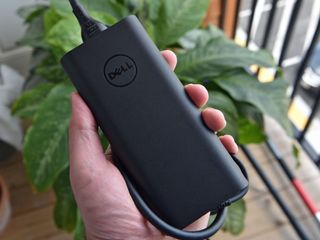Proprietary laptop cables could be a thing of the past, thanks to new USB-C spec
Powerful USB-C cables could replace bulky bricks attached to proprietary cables in the future.

What you need to know
- USB-C cables could support up to 240W charging at some point in the future.
- The USB Implementers Forum outlines the new spec, known as Extended Power Range.
- Powerful laptops can draw more power than the current USB-C spec, making them need proprietary chargers.
While many modern laptops have USB-C ports that support charging, more powerful laptops like the Surface Book 3 and the best gaming laptops need proprietary chargers. These powerful laptops draw more power than the current USB-C standard supports, making proprietary hardware necessary. That could all change soon, thanks to a new specification from the USB Implementers Forum (USB-IF).
The 2.1 update from the USB-IF pushes the power spec of USB-C up to 240W (via Tom's Hardware). It could be years before we see any cables and devices that support that much power, but when it does arrive, it could allow more powerful laptops to rely on universal cables rather than proprietary chargers.
Cables with the higher wattage will be designated as Extended Power Range cables. They will have to meet additional requirements that allow them to support higher voltage. The specification states:
All EPR cables shall be Electronically Marked and include EPR-specific information in the eMarker as defined by the USB PD specification. As defined in the USB PD specification, EPR cables are marked as 50 V and 5 A capable.All EPR cables shall be visibly identified with EPR cable identification icons as defined by the USB-IF. This is required so that end users will be able to confirm visually that the cable supports up to as high of PDP = 240W as defined in the USB PD specification.
Even in cases where powerful laptops support USB-C charging, they can draw more power than they can take in through USB-C. For example, the Surface Book 3 comes with a 127W charger to meet power demands. In contrast, the Surface Book 2 has a 102W charger, which can drain even while plugged in.
Specifications like this often take years to implement, but it will be nice to be able to use USB-C cables for powerful laptops.
Get the Windows Central Newsletter
All the latest news, reviews, and guides for Windows and Xbox diehards.

Sean Endicott brings nearly a decade of experience covering Microsoft and Windows news to Windows Central. He joined our team in 2017 as an app reviewer and now heads up our day-to-day news coverage. If you have a news tip or an app to review, hit him up at sean.endicott@futurenet.com.
